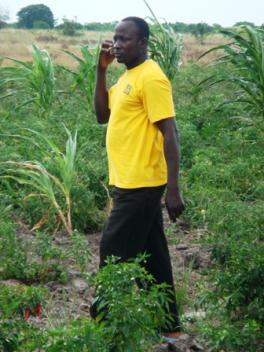 Relatively new to the forefront of development discussions, information technology is quickly proving valuable in developing regions. Helping to spur growth and increase the profits and capacities of small farmers, information technology is allowing people to “improve governance, overcome poverty and deal with critical infrastructure gaps.”
Relatively new to the forefront of development discussions, information technology is quickly proving valuable in developing regions. Helping to spur growth and increase the profits and capacities of small farmers, information technology is allowing people to “improve governance, overcome poverty and deal with critical infrastructure gaps.”
Applicable to more than just farming and governance, one organization is applying advanced technology to education. Children in developing regions provided with modified laptops are now able to engage “in their own education, and learn, share, and create together.” Recognizing the medical value of information technology, another program, developed by the Mobile Alliance for Maternal Action (MAMA), plans to use timed text messages to deliver critical advice to pregnant women in Bangladesh who may not otherwise have regular access to health providers.
The Hunger Project (THP) has recognized the connective power of technology in our own communities as well. The Coalition of Women in Governance, formed and trained by THP-Ghana as part of the efforts to increase women’s role in politics, organized a series of radio programs to educate the public on the need for women to participate more actively in politics. The use of radio allows them to share this important and empowering information with women well beyond their regular physical outreach groups.
In Bangladesh, public sexual harassment, known as “eve teasing,” has become one of the most highlighted issues in recent years. In response, THP-Bangladesh has partnered with the country’s largest call-center company to provide a helpline for women. Women seeking support from any part of the country now have a safe outlet to express their struggle, without fear of social judgment. The helpline can council once-silenced women and, when necessary, will immediately contact the appropriate authorities on behalf of the victim. The social and technology driven support helpline is the first of its kind in Bangladesh.
These efforts create broader awareness and promote wider outreach to communities that might otherwise lack access to such information. In developing regions where access to social services such as health care and informational sessions are obstructed by limited human and financial resources, technology might be the answer to bridging that gap.
Content submitted by THP intern Heidi Chan.
